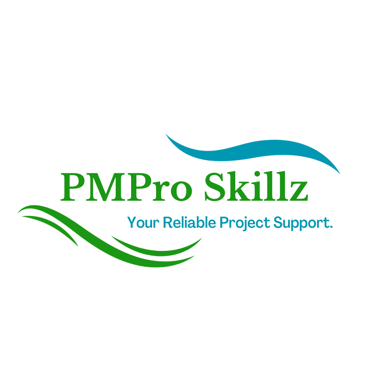Small Projects, Big Impact: Embracing Agile Values for Your Next Endeavor
Experience a paradigm shift in personal project management by applying agile principles such as adaptation, simplicity, and continuous improvement. This guide offers actionable tips to infuse agile techniques into endeavors ranging from side hustles and family vacations to home renovations. Discover how to deconstruct substantial goals into manageable iterations, foster efficient collaboration, embrace rapid learning through failure, and deliver incremental value, all while achieving remarkable results.
Iyanna Trimmingham
8/17/20236 min read
We all have personal projects that hold significance to us, whether it's renovating a room, planning a getaway, or launching a side business. Although these projects might seem trivial compared to larger initiatives, their successful completion can significantly influence our lives. The challenge lies in managing them effectively amidst our various commitments. Enter agile project management—an approach that can make a substantial difference in achieving success even with small endeavors. In this article, we'll delve into the application of agile values like flexibility, collaboration, and continuous improvement to empower your personal projects.
Start Small, Think Big:
Agile methodologies rely on short iterations to create and deliver small increments of a project over time. This approach allows you to initiate your project swiftly, even without a complete roadmap. For instance, when starting a blog, don't delay until every post is planned. Launch your website, write a few articles, and publish them. Then, adapt your content strategy as you go. This incremental approach prevents overplanning and keeps you moving forward. Concentrate on delivering the smallest valuable unit while keeping the larger goal in sight. Beginning with modest steps generates momentum and provides valuable insights early on.
Collaboration Over Contracts:
Agile emphasizes collaboration with stakeholders over strict contracts. Similarly, involving partners early on in personal projects can lead to better outcomes. Communication and feedback are crucial. If you're renovating with a landscaper, engage in a dialogue about possibilities and constraints rather than imposing rigid specifications. Treat them as a valued partner rather than a mere vendor. By fostering collaboration and maintaining open communication, you'll enhance your chances of achieving a project outcome that truly resonates with you.
Embrace Change:


In the agile mindset, change is a constant. Teams view change as an opportunity for improvement. This mindset is equally applicable to personal projects. Adapting to unforeseen changes is essential. For instance, if your planned beach vacation faces unfavorable weather, be prepared to shift gears. Embrace alternative activities like hiking or exploring local attractions. Embracing change can transform potential disappointment into a positive and enriching experience. Apply this adaptable approach to all your projects, as change is inevitable. Concentrate on your desired outcome rather than fixating on specific steps along the way.
Fail Fast, Learn Fast:
Agile teams thrive on rapid iterations and quick testing of ideas, which leads to swift learning. This mindset is equally valuable for personal endeavors. Consider transforming a hobby into a small business. Instead of perfecting one product before selling, create a small batch, gather feedback, and refine your offerings based on lessons learned. Rapidly iterating through failures enables you to identify what resonates with your audience, saving time and resources. Rather than feeling ashamed of failure, consider it a valuable source of insights.
Retrospectives for
Continuous Improvement:
Agile teams engage in retrospectives to reflect on successes and areas for improvement. This culture of continuous enhancement is essential for personal projects. After reaching a milestone, assess what went well and what could be improved. Identify efficient processes and remove obstacles for future endeavors. Reflecting upon and refining your approach boosts personal growth. If you've begun a new fitness regimen, evaluate after a month, adjust your strategy, and keep refining it. Retrospectives nurture self-awareness and a growth-oriented mindset.
Prioritize the Essential:
Agile teams prioritize essential features for quick value delivery, adding additional elements later. Apply this principle to your projects. For instance, when coordinating a wedding reception, focus on fundamental aspects like food and seating. Less critical elements can wait. By prioritizing essentials, you reduce stress and delays. Postponing non-critical components reduces workload and expenses, leaving room for their incorporation later. Differentiate between true priorities and distractions.
The Power of Smaller Goals:
Agile teams break work into manageable, actionable pieces. Adopt this strategy for personal goals. Instead of vague resolutions, establish specific objectives like walking three times per week for 30 minutes. Smaller, quantifiable goals are easier to execute and track, fostering continuous momentum. Dividing larger projects into smaller tasks renders them more achievable. Progress accumulates, leading you closer to significant achievements.
Visualize Your Work:
Agile teams employ visual tools like Kanban boards for tracking progress and coordinating efforts. Similarly, find visual systems that suit your personal projects. Whether sketching a product creation process or tracking landscaping progress, visual aids offer satisfaction as you visibly advance. Transparency is enhanced, particularly when working collaboratively. Visual workflows promote alignment and clarity.
The Power of Retrospectives:
Retrospectives hold immense value for personal projects. They enable fresh perspectives, improved mindsets, corrective actions, celebrations, inner wisdom, self-awareness, confidence, and accountability. Regular self-examination enhances emotional intelligence and understanding of personal patterns. Adopt this practice with a simple calendar reminder for reflection, using questions to guide your assessment.
Adjusting based on Feedback:
Agile teams rely on regular customer feedback for value delivery. Incorporate feedback loops into your projects as well. If you're pursuing freelancing, seek feedback from clients to refine your offering. Simplify feedback collection with streamlined processes, and promptly integrate insights. Continuously gathering input ensures alignment with customer needs and demonstrates your commitment to improvement.
Simplicity Over Complexity:
Agile champions simplicity in design and processes. Apply this principle to your projects. opt for the simplest tools that suffice and streamline your routines. Simplification often boosts productivity and peace of mind. Focus on what's essential to test ideas or accomplish tasks, avoiding overcomplication.
The Freedom of Small Batches:
Agile values working in small, manageable batches for flexibility and risk reduction. Apply this concept broadly. When launching an online course, begin with a single module and gather feedback before proceeding. Working in small batches applies to tasks beyond projects and prevents overwhelm, enabling steady progress.
Customer Collaboration:


In agile, customer collaboration informs ongoing iterations. Embrace a partnership mindset in your projects. Collaborate with clients or collaborators, involve them early, communicate transparently, and seek regular feedback. A collaborative approach integrates varied expertise, fostering superior results.
Continuous Deployment:
Agile emphasizes frequent deployment over waiting for perfection. Apply this principle to your projects by releasing results regularly. Whether sharing insights as a blogger or selling completed products, consistent releases maintain motivation, foster learning, and gather valuable feedback.
Customer Value Focus:
Prioritize delivering maximum customer value, tailoring your efforts to their needs. Apply this focus to your projects, emphasizing tasks that directly contribute to an enhanced user experience. Stay dedicated to providing value that resonates with your target audience.
Continuous Improvement Culture:
Adopt a growth mindset in your projects, consistently seeking ways to improve. Regularly inspect your processes for optimization, striving for incremental enhancements. Drive out waste, maintain focus, and engage in ongoing self-improvement.
Agile Promotes Work-Life Integration:
Agile recognizes the need for balance and sustainability. Extend this principle to your personal life by setting boundaries, integrating work into your life, and prioritizing your well-being.
Empowered, Aligned Teams:
Empower yourself and collaborators by providing the necessary resources and autonomy. Maintain alignment on goals while adapting to changing circumstances. Establish an environment where everyone's contributions are valued and contribute to collective success.
Continuous Value Delivery:


Embrace the agile approach of delivering value frequently, even if it's not perfect. Focus on completing meaningful segments of your project in short cycles, driving progress, and maintaining momentum.
Inspect and Adapt:
Regularly evaluate your performance, make adjustments, and experiment intelligently. Align your routines with your natural rhythms and continually refine your approach.
Team-First Mindset:
Prioritize collaboration and a team-first mentality in your personal projects. Support others involved, engage in open dialogue, and foster an environment of trust and contribution.
Relentless Improvement:
Cultivate a mindset of continuous improvement, seeking incremental enhancements and driving out waste. Commit to getting a little better each day in various small ways.
Frequent Delivery Trumps Perfection:
Prioritize delivering completed work frequently over endless refinement. Share your progress, gather feedback, and use it to enhance subsequent iterations. Focus on valuable output rather than perfection.
Embracing agile values can significantly impact the success of your personal projects. By applying flexibility, collaboration, continuous improvement, and other agile principles, you'll find that even small endeavors can yield substantial results. Remember, the agile approach is adaptable and iterative, so don't hesitate to tailor these concepts to your specific needs. As you incorporate these values into your personal projects, you'll discover newfound efficiency, satisfaction, and accomplishment.



